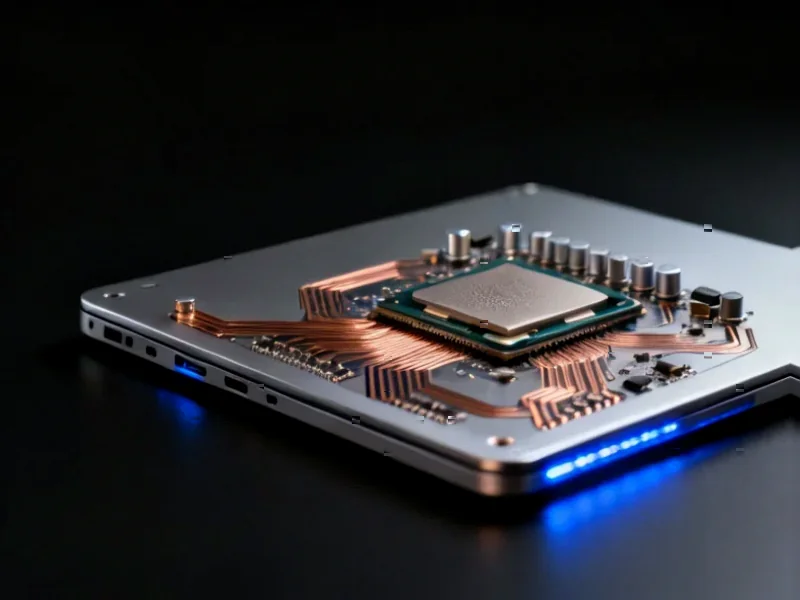According to Phoronix, the Linux 6.19 kernel is adding support for the Line 6 POD HD Pro X audio effects processor through new USB patches submitted for inclusion. This development represents a major step forward for professional audio hardware compatibility on Linux systems, addressing a long-standing gap in the platform’s music production capabilities. The support comes through kernel-level USB driver improvements that will enable the popular guitar processor to function natively without requiring additional software layers or workarounds. This integration follows ongoing efforts by the Linux audio community to improve professional music production tooling on the platform. The addition signals growing recognition of Linux’s potential in professional audio workflows.
The Professional Audio Revolution Quietly Unfolding
What makes this development particularly noteworthy isn’t just the addition of another device driver, but what it represents for the broader Linux audio ecosystem. For years, professional musicians and audio engineers have largely avoided Linux due to limited hardware support from major audio equipment manufacturers. The Line 6 POD series represents professional-grade gear used by touring musicians and studio professionals worldwide. By gaining kernel-level support, Linux is effectively telling the music industry that it’s ready for prime time. This isn’t just about hobbyists anymore – it’s about establishing Linux as a viable platform for serious audio work where reliability and low-latency performance are non-negotiable requirements.
The Silent Shift in Hardware Manufacturer Attitudes
The inclusion of this support suggests a subtle but important shift in how hardware manufacturers view Linux. While Line 6 hasn’t officially announced Linux support, the fact that kernel developers can implement functional drivers indicates better documentation or more standardized protocols from the manufacturer. This contrasts sharply with the historical approach where many audio hardware companies actively obstructed Linux development through proprietary protocols and closed documentation. As Michael Larabel noted on Twitter, this represents the culmination of years of community pressure and demonstrates that persistent advocacy for open standards eventually yields results, even from companies that traditionally prioritized Windows and macOS compatibility.
Real-World Implications for Home and Professional Studios
For working musicians, this development could significantly lower the barrier to adopting Linux in their creative workflows. The POD HD Pro X isn’t just another audio interface – it’s a comprehensive guitar processing system that many artists rely on for their signature tones. Being able to use this hardware natively on Linux means musicians can potentially build entire production rigs around open-source software without sacrificing their preferred hardware tools. This is particularly relevant for project studios and touring musicians who need reliable, consistent performance across different systems. The reduction in dependency on proprietary drivers also means more stable long-term support, as kernel-integrated drivers tend to receive ongoing maintenance rather than being abandoned when manufacturers move to new products.
The Roadblocks That Still Remain
Despite this progress, significant challenges persist for Linux in professional audio environments. The biggest hurdle remains the ecosystem fragmentation across different distributions and real-time kernel requirements. While the driver may work perfectly in one distribution, subtle differences in kernel configurations or userspace audio stacks can create compatibility issues. Additionally, professional audio work often requires real-time kernel patches for guaranteed low latency, which many mainstream distributions don’t enable by default. As Michael Larabel’s work demonstrates, bridging these gaps requires coordinated effort across distribution maintainers, kernel developers, and audio software projects. The hardware support is just one piece of a much larger puzzle that needs to fall into place for Linux to become a mainstream choice for audio professionals.
Where Linux Audio Goes From Here
Looking forward, this development could catalyze similar support for other professional audio hardware. Success with the POD HD Pro X might encourage kernel developers to tackle support for other popular interfaces and processors from companies like Universal Audio, Focusrite, and PreSonus. The bigger opportunity, however, lies in convincing hardware manufacturers that Linux represents a growing market worth official support. As more professional tools become available on Linux, we may reach a tipping point where manufacturers see commercial value in providing first-party Linux drivers rather than relying on community reverse-engineering. This single driver addition, while technically modest, represents another step toward Linux becoming a fully-fledged platform for creative professionals across all disciplines.




